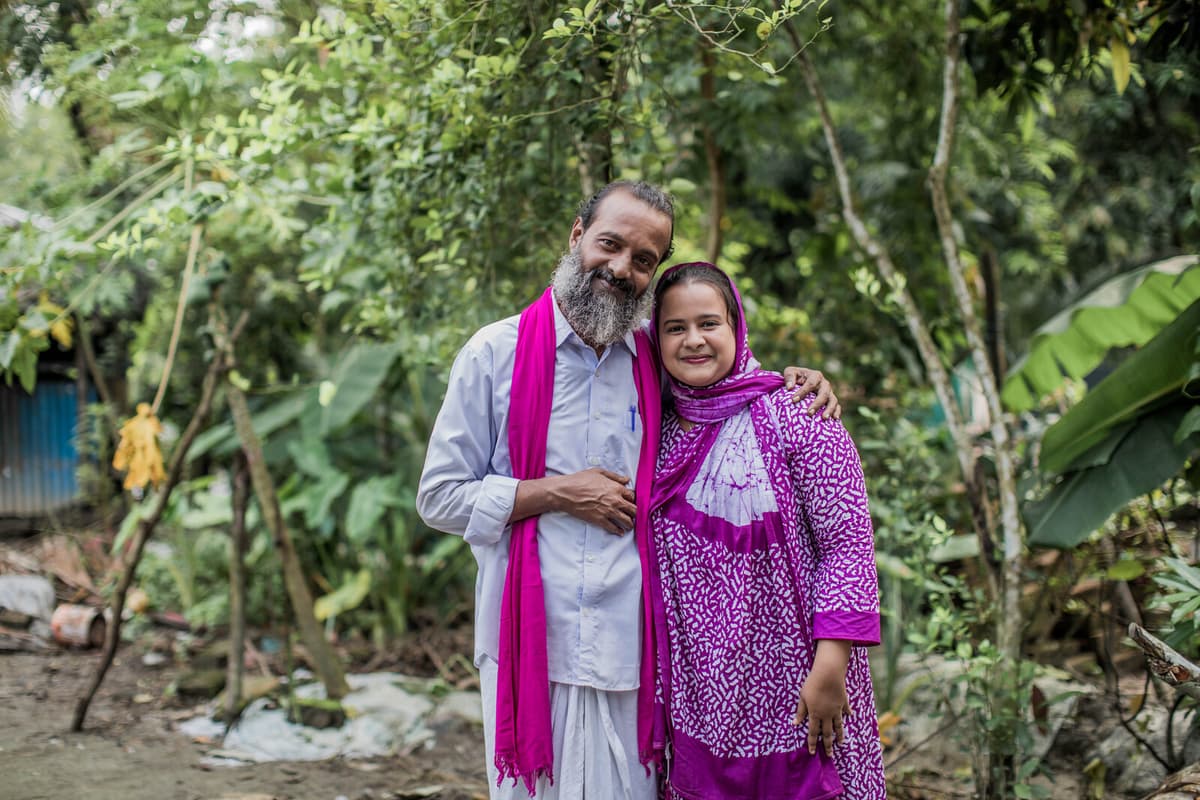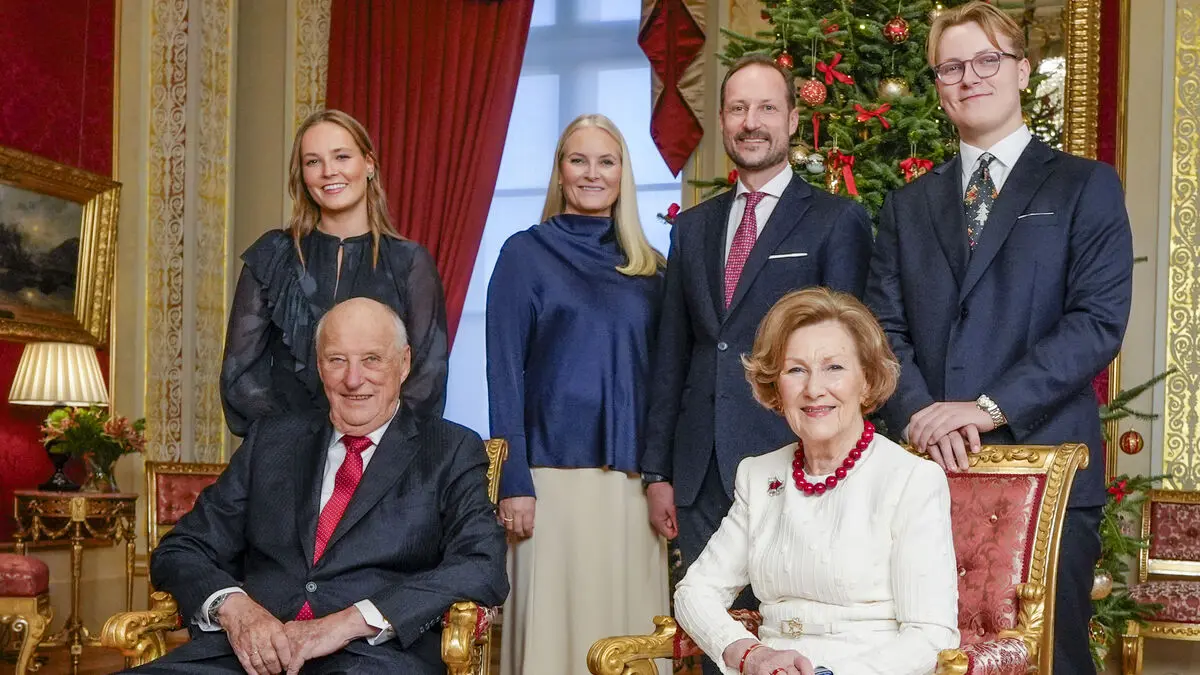Aysha was 13 years old when she got her first period. A year later, she was married – and at 15, she became a mother.
Shunhana was also 13 when she got her period. She swallowed all sorts of outdated myths: that she couldn't eat fish or drink milk, or even go outside the door.
Rabeya was 12, and the blood in her underwear made her terrified. No one had talked to her about periods.
I thought something had bitten me, that I was sick. I panicked, she says over the phone from Bhola, Bangladesh.
Advertisement
Her mother finally explained that periods were normal, but taboo. During her period, Rabeya was "impure" and her grades in school plummeted when she stayed home more often.
I wasn't allowed to eat salt, pick fruit, go to the mosque or to funerals. I wasn't allowed to meet pregnant women, I could hardly leave the house.
Shame and myths
For many girls in Bangladesh, the first period has meant that childhood is over. Periods have been seen as a sign that girls have become women, ready for marriage and motherhood.
In fact, children are neither physically nor emotionally ready for marriage or pregnancy. Complications during pregnancy and childbirth are the leading cause of death among girls aged 15-19, according to the WHO earlier this year.
The stigma surrounding periods has a direct impact on girls' schooling. According to Unicef, one-third of all teenage girls in Bangladesh skip several school days a month due to their period, much linked to feelings of shame and outdated misconceptions that menstruating girls and women are "impure". In other countries, the figure is even higher.
In many cases, schools lack proper toilets and clean water, which further contributes to girls staying home.
On the island of Bhola in southern Bangladesh, the children's rights organization Plan International, together with the organization Wateraid, is running a project called "Stop the stigma". Through the project, girls like Rabeya, Aysha, and Shunhana have gained access to period protection and information about sexual and reproductive health, and school toilets have been renovated.
Dad buys period protection
In a school in the area, the number of students has increased by 25 percent, according to Plan. But most importantly, children, teachers, and parents – including dads and men – have started talking more openly about periods.
Now, Rabeya's dad buys period protection for his daughter every month. Previously, it was unthinkable. Before Plan's project, her parents forbade her from talking about periods at all – everything related to periods was surrounded by shame and secrecy.
I couldn't talk to my dad at all. Now he buys period protection and helps and supports me wholeheartedly, says Rabeya, who is now 18 years old.
Through Plan's period project, she holds training sessions for young people in the courtyard at home, spreading knowledge to both others and her own family. The hope is to be able to continue working to counteract the lack of knowledge about periods around the world.
Fewer child marriages
I have educated all my friends and classmates about periods. My parents are happy and proud – and I am very proud of myself, she says.
Advertisement
Bangladesh is one of the countries in the world where the most children are married off, and it's worst in poorer areas in the countryside. According to a report from the organization Share-Net Bangladesh in 2021, around four million Bangladeshi girls under the age of 18 are forced into marriage every year.
But when girls get to stay in school – and get knowledge about sexual and reproductive health – the risk of forced marriage decreases. Research has shown that girls who have access to period protection and sanitary facilities, and who understand what happens in the body during periods, are more likely to stay in school and avoid being married off.
Now I can control my own life. Knowledge is power, says Rabeya.
.
More than half of the world's population has a period at some point and for most of their lives. But the phenomenon of periods remains a taboo, which limits women's and girls' opportunities to participate in society and thus constitutes a major equality problem.
Besides being seen as shameful and dirty in many countries, women and girls around the world face a range of challenges in managing their periods.
Taboos and economic difficulties, combined with a lack of clean water, soap, and period protection, mean that many women in poorer countries cannot take care of their hygiene during their period.
Since the adoption of the global sustainability goals Agenda 2030, the international community has tried to promote menstrual health in various ways. Among other things, several resolutions have been adopted in the UN General Assembly and the UN Human Rights Council. In several places, national and regional plans have been adopted with the aim of addressing menstruation, hygiene, and improving access to products and information.
Sources: UN, Wateraid
Bangladesh is located on the Bay of Bengal, between India and Myanmar. The country became independent from Pakistan in 1971 after a bloody liberation war. It is one of the most densely populated countries in the world with over 170 million inhabitants.
The original constitution from 1972 guarantees human rights and freedoms, including freedom of religion. It stated that the country is based on four pillars: nationalism, secularism, democracy, and socialism. Both democracy and the secular state were disrupted during the 1970s. General elections were reintroduced in 1991, and according to a five-year-old constitutional amendment, the four principles still apply.
The human rights of women and girls have gradually improved over the past few decades. More and more women are now participating in the labor market, and more girls are going to school. However, violence and discrimination against women are still common, and the country has one of the highest rates of child marriage in the world. Child labor is also common.
Source: Landguiden/UI, among others






